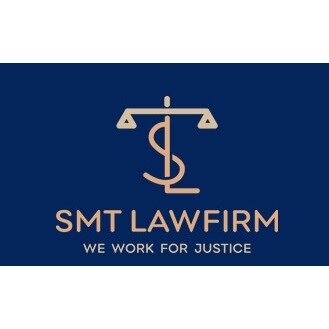Best Land Use & Zoning Lawyers in Chiang Mai
Share your needs with us, get contacted by law firms.
Free. Takes 2 min.
Free Guide to Hiring a Real Estate Lawyer
List of the best lawyers in Chiang Mai, Thailand
Legal guides written by SIAM LEGAL INTERNATIONAL:
- Defamation Laws in Thailand: Criminal Charges and Civil Suits
- The State of Thailand’s Long-Term Resident (LTR) Visa Program in 2025
- The Penalties Of Not Filing Your Income Tax Return As A Foreigner In Thailand
Thailand Land Use & Zoning Legal Articles
Browse our 2 legal articles about Land Use & Zoning in Thailand written by expert lawyers.
- Building Regulations in Thailand: Tips for Property Development
- In the world of property development in Thailand, understanding the local building regulations is absolutely crucial. It can save you from potential legal issues and help ensure a smooth property development process. In this guide, we will walk you through the key aspects of building regulations in Thailand and offer... Read more →
- Land Ownership in Thailand: Title Deeds
- Land ownership in Thailand is not a readily available option for foreign individuals. Foreign companies may have opportunities to own land, particularly through BOI certifications, subject to qualifying business activities and a rigorous application process. Nevertheless, it is still relevant to understand the various title deeds in use in Thailand,... Read more →
About Land Use & Zoning Law in Chiang Mai, Thailand
The land use and zoning laws in Chiang Mai, Thailand, are designed to govern how land can be used and what structures can be built in specific areas. These regulations ensure that urban development is managed sustainably, promoting a balance between conservation and growth. Chiang Mai is a city with a rich cultural heritage and a booming real estate sector, which makes zoning laws particularly significant. The regulations are set forth by local government authorities to address urban planning needs, environmental concerns, and socio-economic factors specific to the region. Adhering to these laws is essential for property development, redeveloping residential spaces, or any modifications to land use.
Why You May Need a Lawyer
Navigating the complexities of land use and zoning laws in Chiang Mai can be challenging, especially for those unfamiliar with local regulations. Here are some common situations where legal assistance may be required:
- Development Projects: Whether planning to build a new commercial or residential property, you'll need to ensure compliance with zoning laws.
- Property Disputes: Conflicts over land boundaries, usage rights, or zoning violations often necessitate legal intervention.
- Rezoning Requests: If you wish to change the permitted use of a parcel of land, you'll likely require a lawyer to guide you through the application process.
- Environmental Compliance: Ensuring that development projects meet environmental regulations can require specialized legal advice.
- Heritage and Cultural Preservation: In a city like Chiang Mai, with numerous heritage sites, legal advice might be necessary to navigate restrictions related to cultural preservation.
Local Laws Overview
Chiang Mai's zoning regulations are enforced at the municipal level, aligning with national urban planning policies. Key aspects include:
- Zone Designations: Lands are categorized for specific uses such as residential, commercial, industrial, agricultural, or mixed-use. Each category has distinct rules on development.
- FAR (Floor Area Ratio): This determines the allowed density of a building, influencing the total area that can be constructed on a piece of land.
- Setback Requirements: Regulations specify the minimum distances that must be maintained between a structure and property boundaries.
- Environmental Regulations: Laws ensure that developments do not negatively impact natural resources, with specific provisions regarding wastewater management, air quality control, and noise pollution.
- Heritage Conservation Laws: Certain areas are protected due to their cultural significance, with stringent guidelines on construction and renovation.
Frequently Asked Questions
What is zoning and why is it important?
Zoning refers to the process of dividing land within a municipality into different areas, or zones, where specific land uses are permitted. It is crucial for orderly urban development, protecting property values, and ensuring environmental conservation.
Can I convert agricultural land for residential use?
Converting agricultural land to residential requires permission from local authorities, involving a rezoning request, subject to municipal and national regulations.
What are the penalties for violating zoning laws?
Penalties can include fines, mandatory compliance measures such as demolition of unauthorized structures, or legal action depending on the severity of the violation.
How do I apply for a building permit in Chiang Mai?
Building permits can be obtained by submitting an application to the local municipal office, including detailed plans and ensuring compliance with zoning and construction codes.
Are there special considerations for developing in heritage areas?
Yes, developments in heritage zones must adhere to strict guidelines preserving architectural style and heritage value, often requiring additional approvals and oversight.
What should I do if my neighbor's property development affects my land?
It's advisable to seek legal counsel to understand your rights and possibly negotiate a resolution or take legal action if necessary.
How does land ownership affect zoning rules?
Ownership does not exempt landowners from compliance with zoning laws. All land use must adhere to the local regulations regardless of ownership rights.
Can zoning laws change, and how does this affect my property?
Zoning laws can be updated by local authorities, potentially affecting property usage rights. Staying informed of these changes is essential for property owners.
What role do environmental laws play in zoning?
Environmental laws are integral to zoning regulations, ensuring that developments do not compromise ecological sustainability, which may influence permitted uses and development intensities.
How long does the rezoning process usually take?
The rezoning process can vary in duration, often taking several months due to the need for thorough review, public notifications, and possible hearings.
Additional Resources
For those seeking further information or assistance, the following resources may be helpful:
- Chiang Mai Municipality: The local governing body responsible for zoning and land use policies.
- Department of Public Works and Town & Country Planning: National body offering guidelines and policies on urban planning and land use.
- Royal Thai Survey Department: Provides cadastral and land surveys, essential for land use and zoning assessments.
- Legal Services in Chiang Mai: Numerous law firms specialize in real estate and land use law, offering targeted legal support.
Next Steps
If you find yourself needing legal assistance in land use and zoning matters in Chiang Mai, consider the following steps:
- Consult with a qualified lawyer specializing in property and zoning laws to gain insight and outline your options.
- Gather all relevant property documents and previous correspondences related to your case.
- Be prepared to discuss your specific needs, whether it is a development proposal, zoning violation, or property dispute.
- Leverage available public resources to understand local regulations before proceeding with any legal actions.
- Stay informed of any changes to local zoning laws that might affect your property interests.
Lawzana helps you find the best lawyers and law firms in Chiang Mai through a curated and pre-screened list of qualified legal professionals. Our platform offers rankings and detailed profiles of attorneys and law firms, allowing you to compare based on practice areas, including Land Use & Zoning, experience, and client feedback.
Each profile includes a description of the firm's areas of practice, client reviews, team members and partners, year of establishment, spoken languages, office locations, contact information, social media presence, and any published articles or resources. Most firms on our platform speak English and are experienced in both local and international legal matters.
Get a quote from top-rated law firms in Chiang Mai, Thailand — quickly, securely, and without unnecessary hassle.
Disclaimer:
The information provided on this page is for general informational purposes only and does not constitute legal advice. While we strive to ensure the accuracy and relevance of the content, legal information may change over time, and interpretations of the law can vary. You should always consult with a qualified legal professional for advice specific to your situation.
We disclaim all liability for actions taken or not taken based on the content of this page. If you believe any information is incorrect or outdated, please contact us, and we will review and update it where appropriate.
















